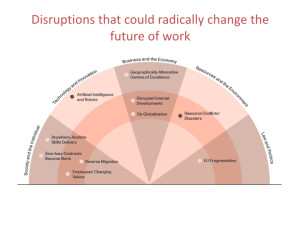Understanding that Brexit vote
Many of my friends from outside the UK have asked me however could people have voted for Brexit. And I have read countless newspaper columnists and analysts asking the smae question (with usually not very profound answers). The best explanation I have come across was posted by Ron Johnston, Kelvyn Jones and Davidn in an article entitled Predicting the Brexit vote: getting the geography right (more or less) on the London School of Economics Politics and Policy blog. Using a large body of polling data collected by YouGov they had earlier this year pointed to “clear evidence suggesting that young people and those with higher-level educational qualifications were much more likely to support Remain, whereas older voters and those with few or no qualifications were much more likely to support Leave.”-And despite they misread the likely outcome of the referendum, their findings largely tie up with a post referendum analysis of the results. Following a detailed analysis they find that:
There are substantial parts of the country where large numbers of people have lost out from the deindustrialisation and globalisation of the last few decades of neo-liberal economic policies, and where the educational system has not helped large proportions of the young to equip themselves for the new labour market. Increasing numbers in these disadvantaged groups were won over during the last few decades by the campaigns in parts of the print media, taken up by UKIP since the 1990s, linking their situations to the impact of immigration – uncontrollable because of the EU freedom of movement of labour principle.
From this they conclude that “class, as expressed through educational achievements, delivered Brexit.”
Linking austerity (which has done nothing good for the vast majority of people in the UK) to the growing inequalities in the education system is important to understanding the Brexit vote. Of course the vote can be seen as an attempt to kick the ruling Tory party toffs. Yet it is very hard to argue for the EU, given that they have been one of the major transnational proponents of austerity.
However, I have some reservations about the idea that “the educational system has not helped large proportions of the young to equip themselves for the new labour market”. On the one hand this is obviously true. But the problem is that the new labour market is largely comprised of low paid and insecure jobs, mainly in the service sector. Many of those who have been able to pay for an increasingly expensive university degree are working in what are classified as non degree jobs. Education and the labour market have to be understood as parts of a symbiotic system. Education alone will not change the reality of lack of opportunity in deindustrialised areas of the UK. Lack of opportunity for meaningful and adequately paid employment and lack of educational opportunity are two sides of the same coin in a currency called austerity.

